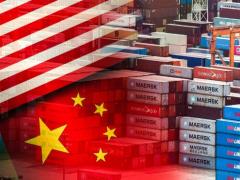Stricter regulation is on the cards for the importation and distribution of medical devices.
Importers/wholesalers/ manufacturers and distributors will soon need to be licensed with the South African Health Products Regulatory Authority (SAHPRA) while their respective medical devices will also have to be registered with the newly formed authority.
Medical devices will likely also be subjected to a committee evaluation of some sort, which will likely involve compliance with certain quality and safety standards and clinical references. “Initially, this will affect the supply of product into the public sector,” cautions Dr Greg Cline, head of corporate accounts at Investec Import Solutions.
“Over time, one should expect licensing to be applied to private sector players as well. This is a common global practice to ensure quality and standards are met for devices integral to healthcare delivery services,” he explains.
The former Medicines Control Council (MCC) was synonymous with lengthy approval times for new medicines set for release to the market.
As such, SAHPRA should circumvent much of the red tape and speed up licensing for new medicines.
However, medical devices will need to be evaluated for quality, safety and efficacy in treatment delivery before being approved.
“There are some additional considerations, such as more detailed record keeping for each device, whether it is compliance certificates, clinical trial study documentation or the like. The efficiency of the new regulatory body will determine ‘speed to market’. Indications are that SAHPRA will be better resourced than the previous MCC,” Cline believes.
For medicines, there is a significant backlog in applications that need to be evaluated. “Hopefully the new body will relook at evaluation and certification criteria to fast-track bringing medicines to market and approving medical devices,” he says.
Cline states that there shouldn’t be any significant additional cost to importing and distributing medical devices and medicines.
However, should there be any delay in obtaining approvals from SAHPRA, this may result in stretching funding cycles for the importer.
“Often one of the most overlooked challenges regarding importing of such products results from having to pay the supplier upfront for the product, but only being able to recover those costs from the end customer 30 days from statement after delivery,” he explains.
Cline says SAHPRA, which essentially comprises the same structural elements of the MCC, has been given a clean slate to define processes, motivate for more budget and re-examine operational processes to provide a high level of service to the country’s citizens.












